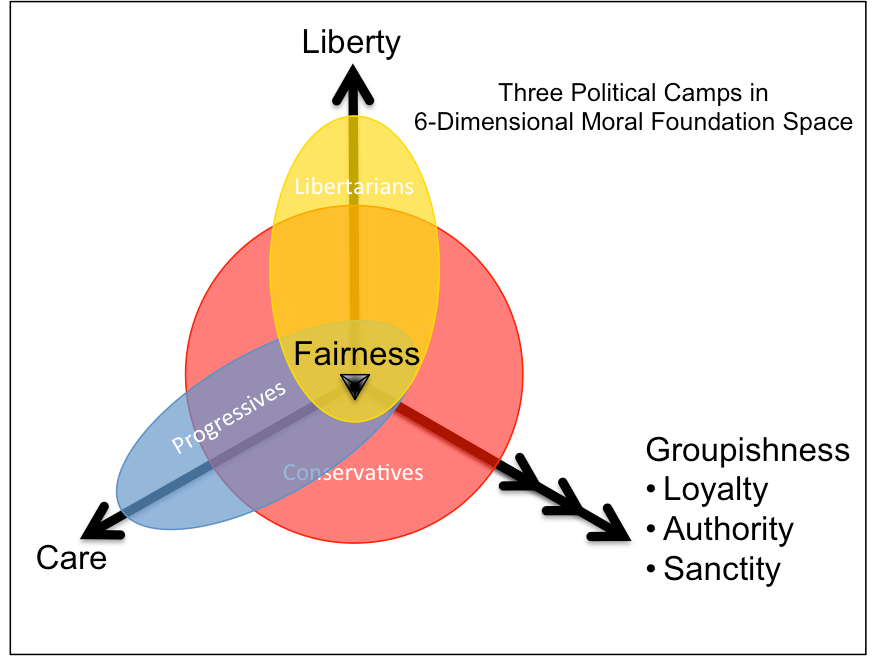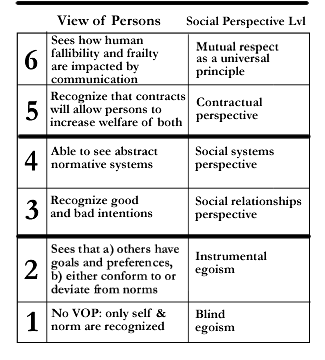Ayjaydee
Active Member
I have yet to know the truth about myselfSome things that are truth to one are fantasy to another.
The truths we can all agree upon are the ones that are
not faith-based. Like the truths about ourselves.
Welcome to Religious Forums, a friendly forum to discuss all religions in a friendly surrounding.
Your voice is missing! You will need to register to get access to the following site features:We hope to see you as a part of our community soon!
I have yet to know the truth about myselfSome things that are truth to one are fantasy to another.
The truths we can all agree upon are the ones that are
not faith-based. Like the truths about ourselves.
What has that to do with today's price of fish?This conversation brought to mind another thing that would have been a deep mystery to traditional Pharisaic or Sadduceean leaning people - the issue of grace to the Messianic figure. Why would a warrior king show grace or majesty?
The cue they didn't miss is that look at it as you may, Jesus is not repeat not a Jewish messiah, being nor civil nor military nor religious leader nor anointed by the priesthood. The notion that the Jews recognized Jesus as the Messiah but chose to reject him is unadulterated bunkum. There's not the slightest evidence that they even noticed him at the time.These are the cues many religious Jews missed in reading scripture.
That may mean nothing more than that they fished from his boat (singular).We know that James and John were well-to-do as they left their father's business.
Sure. He took a weapon to the money changers in the Temple, who were practicing an ancient and traditional profession with all the permits required, and which formed part of the economy of the Temple establishment, hence the Jerusalem religious scene. What say someone turns up at your next religious service and takes a lash to the folk who pass round the plate, smashes up the tithes office and deletes / burns the records, and sends all the money in the bank to some remote charity?The issue with Pelosi is that her hate of Trump led her behave like Trump - so why hate someone for doing what you are doing? This is the essence of Christianity (not Roman Catholicism or Protestantism) Did Jesus act like those who sought to destroy Him?
Why is there a difference between non-believer and diehard atheist?
But even then, you're saying if I can find one credible report of a true athiest being nice to a believer, your POV is falsified?



Not a non-believer, a diehard atheist. Not one has ever been able to resist ad homs, curses, etc.
What has that to do with today's price of fish?
The cue they didn't miss is that look at it as you may, Jesus is not repeat not a Jewish messiah, being nor civil nor military nor religious leader nor anointed by the priesthood. The notion that the Jews recognized Jesus as the Messiah but chose to reject him is unadulterated bunkum. There's not the slightest evidence that they even noticed him at the time.
That may mean nothing more than that they fished from his boat (singular).
Sure. He took a weapon to the money changers in the Temple, who were practicing an ancient and traditional profession with all the permits required, and which formed part of the economy of the Temple establishment, hence the Jerusalem religious scene. What say someone turns up at your next religious service and takes a lash to the folk who pass round the plate, smashes up the tithes office and deletes / burns the records, and sends all the money in the bank to some remote charity?
I have yet to know the truth about myself
I would say it has no residence. There is nothing we can point at and try to express, "that's it," without constraining it, making it conform to the internal wiring that makes up how we think and behave. Yet, we each know it intimately.
I had to take some time to analyse this and try to find a proper way to answer.
When I understand you correctly, you think that it's not only the rules that are arbitrary but the whole concept of morality. In other words: you attack the premise. I understand that position and should not argue against it since that is my position towards gods. But ... with that logic we can declare any human idea as non existent. There will always be people who don't agree with a definition. That doesn't mean that there is no consensus about what morality is. (Though I admit that I'm too lazy to show that that consensus exits.) So I give you the choice to define your idea of morality and simply add a condition to my argument.
If morality exists and is defined as a non empty set of rules to live by, then, by definition, treating people equal in equal situations, is objectively moral, independent of the rules in the set.
It's one thing see who you are, another to understand how you got that way and where it's best be headedShouldn't you be interrogating your own biases?
recalling your own failings? learning from your
own mistakes? forgiving others as you want
them to forgive you? are you guilty of being the
person you accuse of being?
That kind of personal truth.
So there's no truth. Why then do we hate Nazis?
As long as you insist on the singular, you will find that there is no single universal truth.
The answer is a combination of similarities and differences.
In the absurd sense of even A is A, that is not true, because it is 2 different As. You can take all of reality and claim one truth for all case, but then it will break down, because in some other cases, others humans can do it differently.
We share e.g. gravity, but we don't share the same truth of how reality matters. That is it. Truth depends on context. For some similar contexts the given truth is the same, but reality is not one and there is no single truth for all of reality.
It's one thing see who you are, another to understand how you got that way and where it's best be headed
But there is truth and perhaps one day I'll see itIf there's no truth then there's no "best" way to go. All ways are valid.
This is nihilism.
So, you agree that existence of God is faith-based and is a fantasy? What truth do you know about yourself?The truths we can all agree upon are the ones that are not faith-based. Like the truths about ourselves.
Buddha taught me the truth about myself. How come he did not teach it to you?I have yet to know the truth about myself
Any scientifically validated evidence about God, his prophets / sons / messengers / manifestations / mahdis, about judgement / heaven / hell will do. I am not too fuzzy about it.It strikes me that quite a few people either aren't really able to specify what would falsify their views, or they have rather outrageous standards for falsification that it seems unlikely they'd accept for other people's POVs.
So you are a German who has been told Jews rule the world and the Slavs
will one day be industrialized and exterminate you - so you have to kill first.
Is that a "context truth." ?
Because what I heard from my studies was that he admonished me NOT to take his word for it and meditate until I saw it for myself. He even provided a suggested roadmapSo, you agree that existence of God is faith-based and is a fantasy? What truth do you know about yourself?Buddha taught me the truth about myself. How come he did not teach it to you?Any scientifically validated evidence about God, his prophets / sons / messengers / manifestations / mahdis, about judgement / heaven / hell will do. I am not too fuzzy about it.
I had to give it some thought, and I rejected quite a few options.As an aside from this thread:
It strikes me that quite a few people either aren't really able to specify what would falsify their views, or they have rather outrageous standards for falsification that it seems unlikely they'd accept for other people's POVs.
Interesting.
Incidentally, what's your answer to your question?
That is, he's not a Jewish messiah at all ─ the Christians invented a new job description but used, or stole for political reasons, an old name for it.Certainly, the Messiah as Redeemer holds to no religious qualification, no worldly authority, no power, no military interest and no civic responsibility.
The Messiah isn't. He's the one who restores their political independence, by military defeat of the enemies of the Jewish people if needs be. And by doing so he gets to be the leader, or one of the ruling clique anyway.The Redeemer must be one who dies for His people.
Sure, but Job is an out and out morality tale, not a piece of history (giving us the problem that we're glad it's not history, but appalled by the morality)."I know that my redeemer lives and he shall stand upon the earth in the latter days" said Job.
Indeed, why not? An excellent point.That is a Mystery to many Jews - why redeemer and not conqueror?
Yes, the t-shirt, "If you don't sin then Jesus died for nothing". But what was the price of sin, to whom was it payable, and how come the bill involved a suicide mission?someone who pays the price for our sins? If so, how?
I think you mean "despised AND rejected" but don't let me put words in your mouth. Anyway, the author of that part of Isaiah was talking about the Suffering Servant, who stands for the nation of Israel as it was in that author's time, and has nothing to do with the future or with Jesus. I mean, that isn't even controversial."Despised the rejected of men, a man of sorrow and acquainted with grief" wrote Isaiah.
I am capable of using my own mind to work out the logical definitions of these terms, and of explaining to others why and how I have done so. So I don't have to rely blindly on the propaganda posted by liars and fools on the internet.From the American Atheist Association:
"Atheism is one thing: A lack of belief in gods.
Atheism is not an affirmative belief that there is no god nor does it answer any other question about what a person believes. It is simply a rejection of the assertion that there are gods. Atheism is too often defined incorrectly as a belief system. To be clear: Atheism is not a disbelief in gods or a denial of gods; it is a lack of belief in gods.
Older dictionaries define atheism as “a belief that there is no God.” Clearly, theistic influence taints these definitions. The fact that dictionaries define Atheism as “there is no God” betrays the (mono)theistic influence. Without the (mono)theistic influence, the definition would at least read “there are no gods.”
Atheism is not a belief system nor is it a religion.
While there are some religions that are atheistic (certain sects of Buddhism, for example), that does not mean that atheism is a religion. To put it in a more humorous way: If atheism is a religion, then not collecting stamps is a hobby."
What is Atheism? | American Atheists
I think these guys know what they are talking about more than you do.
